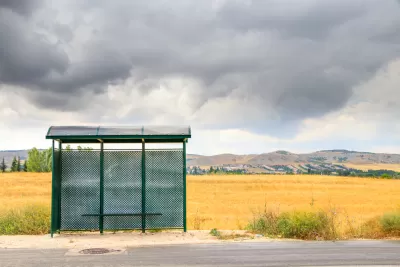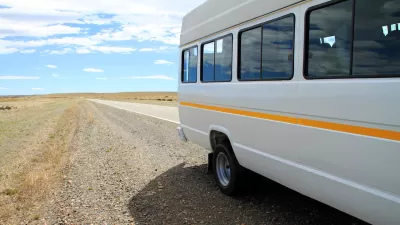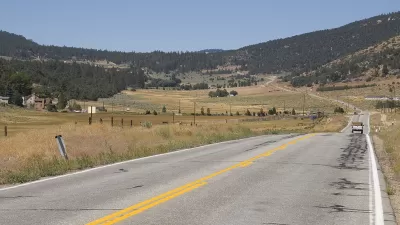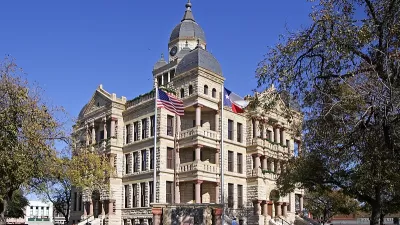With limited resources and dispersed service areas, rural transit systems are turning to technology to provide on-demand service and improve transit options for residents.

"Good public transportation in any city is a lifeline for accessing jobs, healthcare and education." But "While some assume everyone in rural America owns a car, most counties with high rates of zero-car households are actually rural ones," write Scott James Matheson and Sam Couvillon. "[M]ost rural areas have been cut off from access to effective public transportation for years. But that is starting to change thanks to new transit innovations that rural communities are putting in place, a welcome trend that federal infrastructure dollars could accelerate."
Matheson and Couvillon, both mayors of small Georgia towns, say "Public transit has always looked different in communities like ours," with needs that fixed-route bus systems and trains can't meet as efficiently as in big cities.
But there is another, game-changing approach, write Matheson and Couvillon. "We’re using technology to run our own on-demand transit services that are efficient and are drastically expanding access to affordable, convenient and reliable transit. We launched these innovative transit services in a matter of months — not years or decades — by focusing on outcomes for who we want to serve and embracing new ways that get us there."
Valdosta, where Matheson is mayor, launched an on-demand public transit service that has received over 14,000 ride requests per month. Gainesville, the city where Couvillon serves as mayor, "launched WeGo to replace three underperforming fixed routes and immediately saw dramatic improvements," quickly expanding the program to the entire county.
We recently noted a similar argument for the potential of small and rural transit systems to lead the way in electrification. As the authors of this article note, there's an advantage to not having to wait decades for massive, resource-intensive projects. Using technology and on-demand services, "We can deliver transformative, game-changing transit service in a way that is efficient, flexible and adaptable to a community’s mobility needs."
FULL STORY: What big cities can learn from the rural US about public transit

Planetizen Federal Action Tracker
A weekly monitor of how Trump’s orders and actions are impacting planners and planning in America.

Chicago’s Ghost Rails
Just beneath the surface of the modern city lie the remnants of its expansive early 20th-century streetcar system.

San Antonio and Austin are Fusing Into one Massive Megaregion
The region spanning the two central Texas cities is growing fast, posing challenges for local infrastructure and water supplies.

Since Zion's Shuttles Went Electric “The Smog is Gone”
Visitors to Zion National Park can enjoy the canyon via the nation’s first fully electric park shuttle system.

Trump Distributing DOT Safety Funds at 1/10 Rate of Biden
Funds for Safe Streets and other transportation safety and equity programs are being held up by administrative reviews and conflicts with the Trump administration’s priorities.

German Cities Subsidize Taxis for Women Amid Wave of Violence
Free or low-cost taxi rides can help women navigate cities more safely, but critics say the programs don't address the root causes of violence against women.
Urban Design for Planners 1: Software Tools
This six-course series explores essential urban design concepts using open source software and equips planners with the tools they need to participate fully in the urban design process.
Planning for Universal Design
Learn the tools for implementing Universal Design in planning regulations.
planning NEXT
Appalachian Highlands Housing Partners
Mpact (founded as Rail~Volution)
City of Camden Redevelopment Agency
City of Astoria
City of Portland
City of Laramie





























